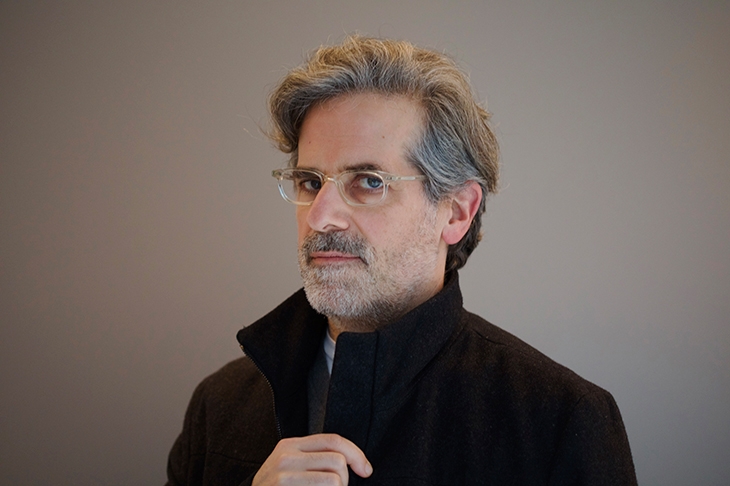This is an Exquisite Corpse of a novel — or if you prefer another name for that particular game, Heads, Bodies and Legs, or Combination Man, or perhaps most appositely Consequences. The parlour game involves creating something and then passing along the hidden creation to which another then adds, and The Arrest reads like Jonathan Lethem playing the game against himself.
He is a novelist whose work has always experimented with, and evaded, genres. In this one, he is juggling dystopia, Thoreau-like idealism, science fiction, folk horror, sentimentality, revenge plot and quite a lot more. It is also very funny. I did want to say that it is like Cormac McCarthy animated by Hanna-Barbera, but Lethem gets there first, since one scene is a — loving? — evisceration of the plot holes in The Road. (‘If McCarthy was honest, he’d admit he wrote a campfire story… instead he inserts all this Old Testament shit. The world’s reduced and cleansed, the ambiguity scrubbed out.’)
The Arrest of the title is, was, will be an event after which almost all technologies fail, from aeroplanes to the internet to guns. The protagonist is now called Journeyman, but was known in a past life as Sandy Duplessis. Except he wasn’t truly known. He worked for a college friend, Peter Todbaum, endlessly revising scripts for films and series that were never made.
When the Arrest happened, he was coincidentally and luckily off to see his sister Maddy, who is running a co-operative organic farm. The co-operation depends on her enforced consent to things. There, with no skills to speak of except taking provisions around, Sandy becomes Journeyman. There is little use for script editors, but dropping off supplies to the local weirdo (obsessed with Sei Shonagon), helping the butcher deal with free-range ducks and liberated turkeys, means he has a function. The Arrest has entailed
Goodbye to gasoline and bullets and to molten flourless cake. Goodbye to coffee. To bananas and Rihanna, to Father John Misty, to the Cloud, to news feeds full of distant core meltdowns, to manatees and flooded cities and other tragedies Journeyman had guiltily failed to mourn.
They deal with vigilantes and kale and it is all almost an idyll until Todbaum turns up in, no less, a nuclear powered supercar with an earth-boring drill and an espresso machine.
In one of the flashbacks, Lethem signals his intent: ‘It was like comedy, only not funny.’ As Maddy plans what to do, one can see the elements of sacrifice coming through. Todbaum entertains people with his road-trip accounts; but something is being built on a nearby island. The question is: who is to be sacrificed?
The Arrest is a very wry, very smart novel — every wink and twist is pre-empted. For all the genre shenanigans it has a proper purpose. The apocalypse, in a way, has always already happened. ‘The self’s a howling counterfeit, an arena where no show goes on, a parenthesis with nothing inside,’ declares Todbaum. One wonders to how many of us that might apply.
Got something to add? Join the discussion and comment below.
Get 10 issues for just $10
Subscribe to The Spectator Australia today for the next 10 magazine issues, plus full online access, for just $10.
You might disagree with half of it, but you’ll enjoy reading all of it. Try your first month for free, then just $2 a week for the remainder of your first year.














Comments
Don't miss out
Join the conversation with other Spectator Australia readers. Subscribe to leave a comment.
SUBSCRIBEAlready a subscriber? Log in